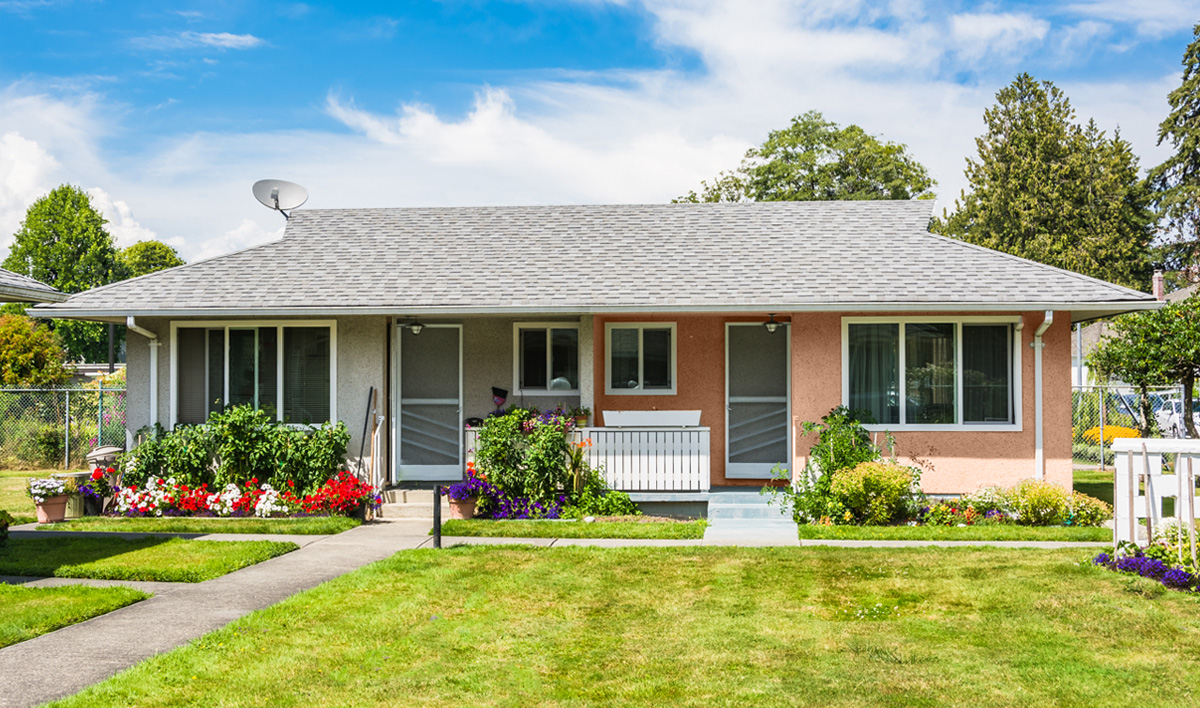
At least for a decade now, a thought movement goes by the acronym FIRE, which means "Financial Independence, Retire Early." One of its most famous exponents, Mr. Money Moustache, writes a lively, witty, iconoclastic, and interesting blog http://www.mrmoneymustache.com/on living frugally off passive income while enjoying life and protecting the planet. (www.mrmoneymustache.com)
Since we are in the business of financing the acquisition and refurbishment of houses and multi-unit properties, we were intrigued by Mr. Money Moustache's blog in late October of 2020 on "House Hacking."
We have been thinking about this subject on and off for about 18 months. So, we decided to write a short blog about how hard money loans can be leveraged for "House Hacking” and how to use "House Hacking" as a tool in real-estate investments.
What is House Hacking?
Mr. Money Moustache defines house hacking quite succinctly:
"[House Hacking]" is just a trendy name for “renting out part of your house as an apartment.” You can add layers of complexity (and profit), for example, by moving into that "apartment" yourself and renting out the more significant part of your house to someone else. Or you can live in a tiny house in your backyard. But at the core, we are still talking about renting apartments.
House hacking is nothing new. Have you ever heard stories of owners renting out furnished rooms to boarders (primarily immigrants) in brownstones in New York, Philadelphia, or Chicago at the turn of the 20th century? Well, those are the precursors of modern-day examples of house hacking. It is a tool at your disposal to help you supplement your income by leveraging your property.
Today, you could rent a cottage on the back of your property (fairly standard in most US states). If you are the more adventorous type, you could consider purchasing a house that's "too big for you." Do some refurbishing, including, among other modifications, independent entryways, independent heating and electrical systems, an additional kitchenette, and extra closet space, for example. You could be on the way to owning a small apartment within your property that you could rent out (either through Airbnb, short-term leases if furnished, or long-term leases). At the same time, you live on the other part of the house. On the more formal side, you could purchase a 2-, 3- or 4-unit residential property, occupy one of the units, and proceed to rent the rest of the units.
Now mind you, there will certainly be municipalities with stringent zoning laws that forbid you from house hacking a single-unit home. Still, there are other municipalities (as appears to be the case in Colorado, where Mr. Money Moustache lives) where you could do it with or without permits. So be sure to check out your zoning laws before you get into trouble with local housing ordinances.
The above-said "House Hacking" is a form of investment tool for financing a rental property in which you, as a landlord, could live in the same plot of land as your tenants. Now, as with everything, becoming a landlord entails knowledge and effort, but once you get underway, you could be paving the way for a healthier financial life.
Why does house hacking seem to work where permitted?
There have been books published on the how's, why's, and where's of house hacking, so if we have sparked your interest, be sure to read one. For now, let us go along with Mr. Money Moustache's basic explanation (complemented by our own ideas) of why house hacking works out for the investor.
- While interest rates have been rising lately, they have been (and still are) at their lowest in decades. This effectively makes houses “cheaper” to own because you lock in the purchase price today but pay it off slowly with dollars worth a bit less with each passing year and much more so with current inflation levels. (That is if you can find a house you can afford in today's crazy-hot housing markets).
- Rents are Non-linear. People pay a lot for their first bedroom, bathroom, and kitchen but only a little bit more for each additional bedroom. Thus, if you own the house, you can give up on just a little bit of your space but get a more significant portion of the rent than you would have collected had you rented out your entire house.
- House hacking is a way to supplement your income. Larger houses are pricier, thus requiring more significant income to pay for a mortgage. Yet, if you supplement your day-job income with the rental income, you can, in principle, find a way to own that large house. And as years go by, YOUR net worth will have increased more than if you had initially purchased a smaller home.
Hard money loans as related to house hacking
Not all house hacking is financed in the same fashion, and not all financial entities will allow you to house hack as an investment tool.
- Suppose you are thinking of purchasing a home and renting out the backyard studio. In that case, you will be applying for a typical home mortgage, and most mortgages do permit this type of lease to happen.
- If you plan to buy a large property, refurbish it, and partition it while living on one side and renting out the other, you still need to apply for a home mortgage. Also, you would be required to disclose the planned partitioning to us or any other financial entity as part of the application process.
- Lastly, if you plan to purchase a multi-unit property to live in one of the units while renting out the rest, the loan would be originated as a consumer loan (not as a mortgage). This means you would have to get all your standard loan disclosures, meet specific credit criteria, and demonstrate your ability to repay the loan (ATR).
Summary
No matter what type of loan your plans call for, at AMI Lenders, we are genuinely interested in helping you achieve your real estate investment goals. We will be keen to discuss your plans for house hacking if permitted in your municipality by the zoning laws.
If you decide to purchase a home in the Houston area, consult with AMI Lenders. We are one of Houston's fastest closers and could become your financial ally. We fund our loans and can move as fast as the law allows. Borrowers in Houston will also have a hard time finding lower rates for hard money or private loans than we offer. We want our customers to succeed and take advantage of the financial opportunities provided by real estate investments. If you are ready to see if you qualify for one of our loans, fill out an application here.



